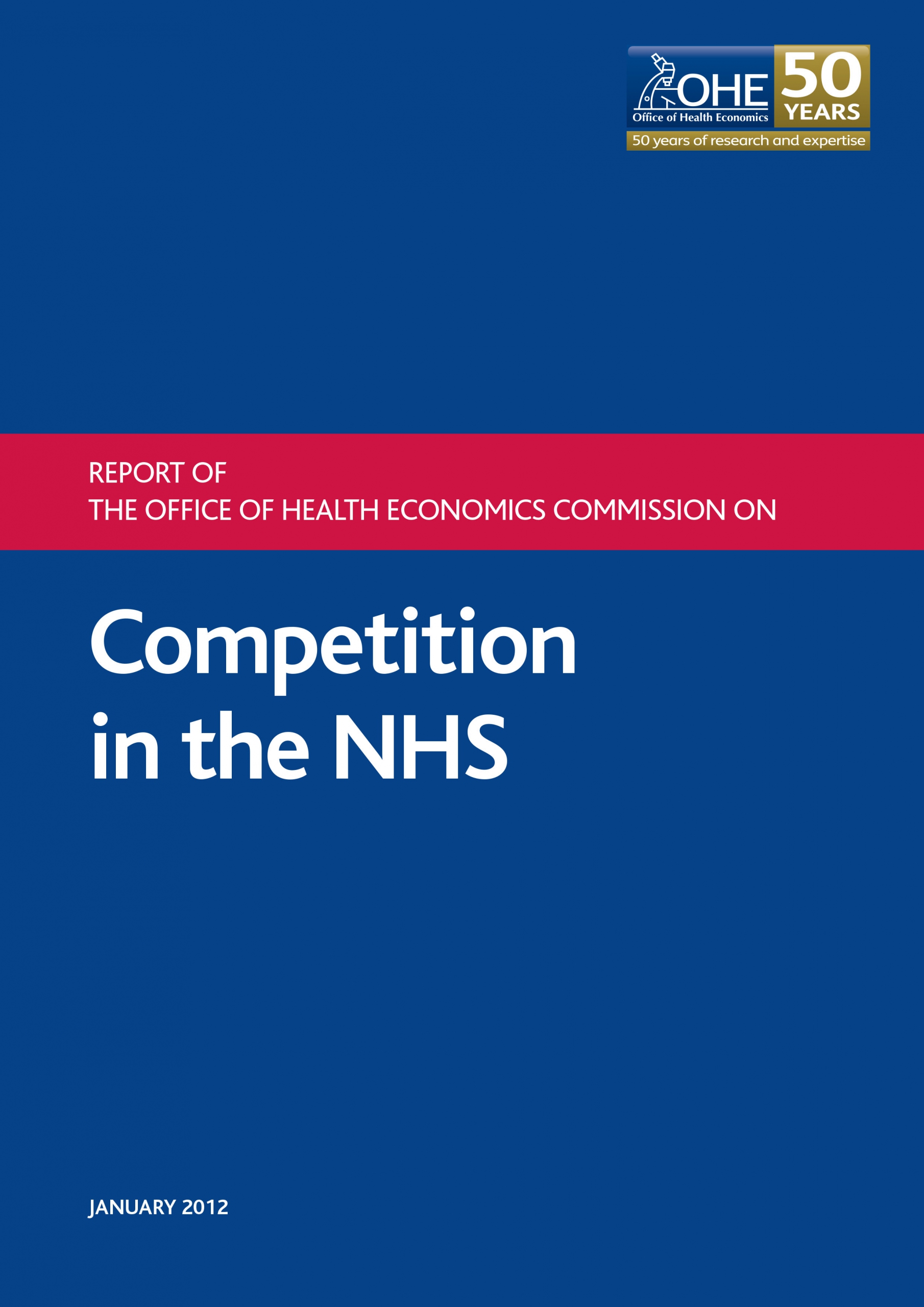Sign up to our newsletter Subscribe
Analysing Global Immunisation Expenditure

This report is based on the deliberations of the OHE Commission on Competition that was assembled in early 2011 “to consider the circumstances where competition between providers of health care might be both feasible and expected to yield benefits, and where not.”
The…
This report is based on the deliberations of the OHE Commission on Competition that was assembled in early 2011 “to consider the circumstances where competition between providers of health care might be both feasible and expected to yield benefits, and where not.”
The members of the Commission possessed experience and expertise in competition/regulation economics, NHS economics, health policy, NHS management, and health care provision. Their views on competition in the NHS were divergent, meaning that the conclusions the Commission would reach were far from predetermined.
During the course of the year, the group reviewed and discussed a large quantity of the available published and “grey” literature. It also commissioned additional research (available via the links below) and held two workshops with clinicians and commissioning managers in the NHS.
The report recommends careful expansion of competition between providers of NHS-funded health care in England. It sets out the evidence compiled and analysed by the OHE Commission over the last year and concludes that:
Determining when and where competition is most likely to be effective is a challenge because health care consists of such a wide variety of very different services, delivered in dissimilar locations. To assist in the process of such assessment, the OHE Commission has developed a tool to help show where competition is most likely to be effective; this tool is included in the report.
The report suggests that although competition in the NHS is controversial, in the right circumstances it can be used to stimulate the provision of better health care than is achieved without competition. This does not mean that competition is desirable or feasible for all NHS services in all locations. The issue is not whether to have competition for all NHS services or for none; the question is for where and for which services competition would produce benefit for patients.
The evidence on competition in the NHS is limited, the report notes, but what is available implies that, used carefully, competition can benefit patients. The OHE Commission recommends:
A limited number of hard copies of the report are available. Please contact Kerry Sheppard for information.
The Commission also commissioned three background reports, available for download below.
Download Forder, G. and Allan, S., 2011. Competition in the care homes market. Report for the OHE Commission on Competition in the NHS. London: Office of Health Economics.
Download Goudie, R. and Goddard, M., 2011. Review of evidence on what drives economies of scope and scale in the provision of NHS services, focusing on A&E and associated hospital services. Report for the OHE Commission on Competition in the NHS. London: Office of Health Economics.
Download Mordoh, A., 2012. Critical review of the quality and competition measures and identification strategies used in health care studies. Occasional Paper 11/05. London: Office of Health Economics.
Report of the Office of Health Economics Commission on Competition in the NHS
